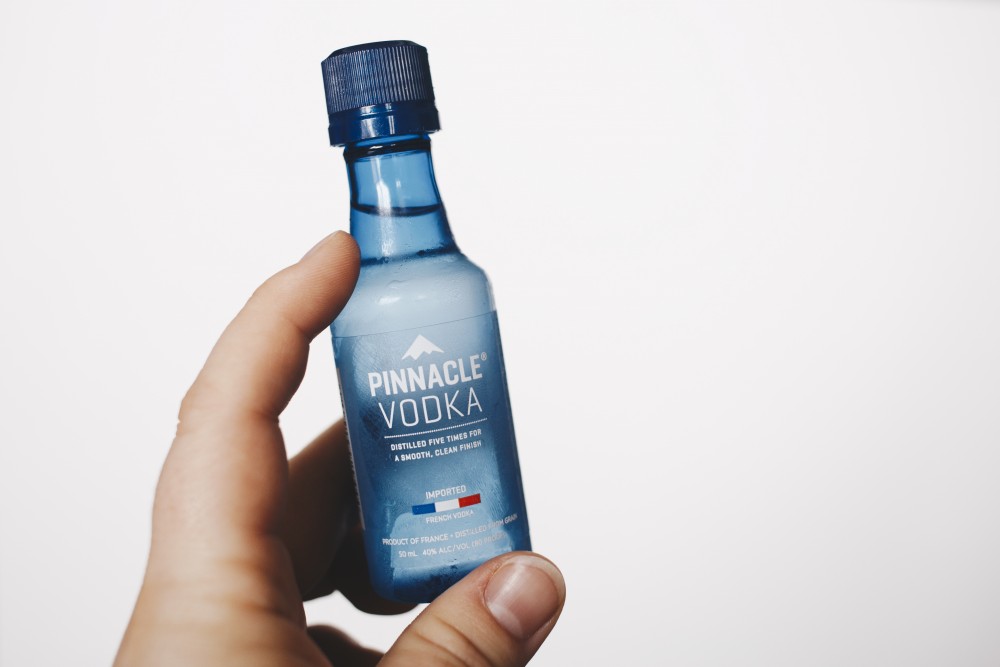New study finds that ‘moderate’ drinking isn’t well-defined

GVL / Sara Carte
Apr 19, 2018
A recent study by The Lancet has found that moderate drinking doesn’t carry the health-related benefits many once thought it did, and many are calling for the guidelines that constitute moderate drinking to be revisited.
The study highlighted the consumption of alcohol in grams per week and found that moderate drinking still carried negative health effects. As many universities across the country work to curb negative alcohol-related issues that affect student health and performance, the study works to illustrate how the line between “moderate” and “extreme” drinking can sometimes be ambiguous.
Grand Valley State University is no exception to this and has taken efforts to reduce alcohol abuse on campus. Sgt. Jeff Stoll of the GVSU Police Department stated that the department’s amnesty program in reporting alcohol-related issues increases police responses to potentially dangerous events due to alcohol consumption.
“One of the benefits we’ve had is our medical amnesty law change, where people call for alcohol intoxication and medical-related issues and are encouraged to do so and are granted immunity as a result of that,” Stoll said. “We’ve gotten more calls for alcohol-related overdoses, which is good because we’re getting treatment to the people who need it, and people are still encouraged to call.”
While the university works to reduce potentially dangerous alcohol-related events, Stoll states that a recent law change passed by the Michigan State Senate allowing minors in possession to receive only a civil infraction may have unforeseen consequences and may even cause crimes as a result of alcohol consumption increasing.
“I would say we’re at a very interesting crossroads right now because of the transition from misdemeanor back to civil infraction, so the perception of the law violation is now completely different,” Stoll said. “I would say one of our concerns is that the diminished punishment could lead to other crimes. If more people are drinking because they view the punishment as less, that would statistically increase the amount of drunk driving, would increase the general amount of fights that happen, property damage, things like that, so you would have a trickle-down criminal effect.
“You might not have as many alcohol arrests. You will have other arrests because people are drinking alcohol.”
Another factor in drinking on campus is weather, as sunny skies and pleasant temperatures tend to draw students outside, where walking from party to party on campus becomes more appealing. Stoll said dreary weather during the winter tends to reduce alcohol-related enforcement calls, as students tend to stay inside doing other activities.
“I would say we look at alcohol with some concern because of the amounts some people do consume,” Stoll said. “It’s hard to give a grand speculation because we have some weeks where it’s really bad and some weeks were it’s not so bad. We generally get more activity on football game days in the fall; weather is a big dictation of general activity because when the weather’s good, people are out doing things.”
In comparison to other universities, however, GVSU is fortunate to have fewer alcohol-related fatalities, with the only one within the past few years occurring off campus. Stoll credits GVSU students for being active participants and encourages them to continue to look out for others who may be having too much to drink.
“To the student body’s credit, we have had no on-campus fatalities related to alcohol over the past several years,” Stoll said. “To the students’ credit, we have not dealt with even one fatality related to alcohol, where some colleges will deal with one or two per year. We rely on people to be active bystanders. That’s part of our training that our clubs and Greek life go through, that when they see an issue, they are contacting police to try and get it right.”
Stoll explained that every university deals with different issues. For example, there aren’t many bars in the nearby area around GVSU, with the exception of Mully’s.
“We don’t have to deal with bars here,” he said. “We have one, Mully’s, versus somewhere like University of Michigan or Western Michigan where their campuses are built more within an urban area, so they have a lot more students who are going to drink off campus, then come back.
“Drunk driving for us isn’t nearly as big of a deal since our campus is so tight. Each campus has different issues they have to deal with specifically.”
As studies show moderate drinking can have a large influence on long-term health, so too can the effects of concentrated binge-drinking in campus environments. It’s important for students to remain watchful for the signs of alcohol overdoses and to contact the authorities in the event of alcohol abuse.

























